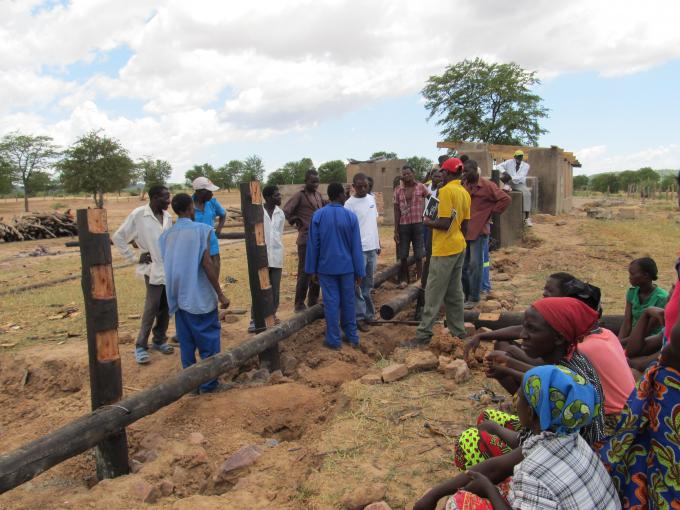Cash for work programme boosts community assets
Zimbabwe: A cash-for-work initiative being implemented by Save the Children under the Emergency Food Security Programme is helping to boost community-owned assets in Binga and Kariba districts. The programme which started in October 2014 will continue until June 2015 and is benefitting 6,750 food insecure households, with a combined total of 29,772 beneficiaries.
The project beneficiaries or their representatives are expected to work for a maximum of four hours each week, on projects aimed at rehabilitating community owned assets such as dip tanks, spray races, irrigation and gardening projects. Most of these community assets being rehabilitated had been dilapidated over the years, while some are totally new assets being set up.
In return, $28 is transferred to beneficiaries on a monthly basis via a mobile money transfer service, and through Cash-in-Transit services in a few areas that do not have mobile phone network coverage. The cash hand outs are meant to enable these food insecure households to purchase food from the local markets. However, vulnerable groups such as the elderly and child headed families are given the cash freely, without having to work.
A total of 35 assets which include 12 dip tanks, eight community gardens, 10 spray races, four dams and one irrigation scheme are currently being rehabilitated under this programme. These assets were selected by community members following public consultations by Save the Children and relevant government departments at community level.
The enthusiasm among community members is commendable and this has seen dip tanks being repaired, gardens being fenced; toilets constructed and spray races being erected within a short space of time at these project sites. One of the projects is the Buruwayo Irrigation Plot in Kariba district, which had for some time been threatened by water shortages. However, with support from Save the Children; an 800-metre long pipeline is now being laid to channel water from a natural spring on the nearby Chikuro Mountain to the Buruwayo Irrigation plot.
Community members have been providing locally available materials such as stones, water and sand among others, while Save the Children has been providing materials that are not available in the communities such as cement, fence, nails, roofing timber, pipes, nails and tying wire among other materials and monitoring the progress. Officers from key government departments are providing the technical guidance.
Besides strengthening community livelihoods assets, the project has promoted the growth of the local businesses, particularly the mobile cash transfer agents who are responsible for cashing out money to beneficiaries. These agents are getting a commission for every transaction that they process. Local shops and produce markets are also benefitting as project beneficiaries now have money to buy food and others items in the shops and markets.
 Zimbabwe
Zimbabwe 